Module No. 5660
Checking the Altitude Differential from a Reference Point
After you set a reference altitude, the second hand of the watch will indicate the difference between your current altitude and the reference altitude. This makes it easy to measure the altitude difference between two points while climbing or trekking.
Setting the Altitude Differential Measurement Range
-
Enter the Altimeter Mode.
-
Pull out the crown.
-
Press (B) twice.
-
Rotate the crown to select either [100m] or [1000m].
-
Push the crown back in to complete the setting operation.
This displays the altitude for your current location.
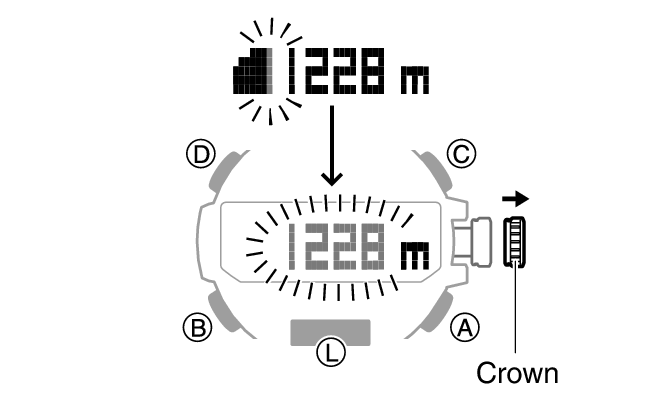
This displays the altitude differential measurement range.
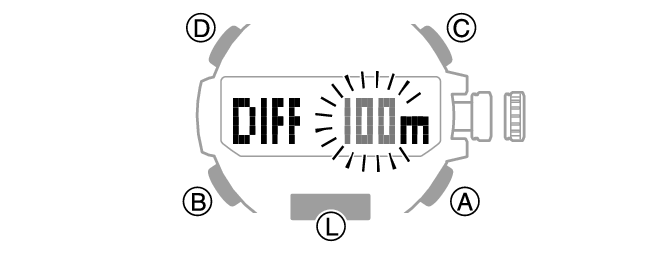
[100m]: ±100 meters (±328 feet) in 5-meter (16-foot) units
[1000m]: ±1000 meters (±3280 feet) in 50-meter (164-foot) units
Note
If you do not perform any operation for about two minutes after pulling out the crown, crown operations will automatically become disabled. If that happens, push the crown back in and then pull it out again.
Measuring Altitude
-
Use the contour lines on your map to determine the altitude differential between your current location and your destination.
-
Take an altitude reading of your current location.
-
Hold down (D) for at least two seconds to set your current location’s altitude as the reference altitude.
-
While comparing the difference between the altitude you found on the map and the altitude differential indicated by the watch’s second hand, advance towards your destination.
This displays [DIFF RESET] 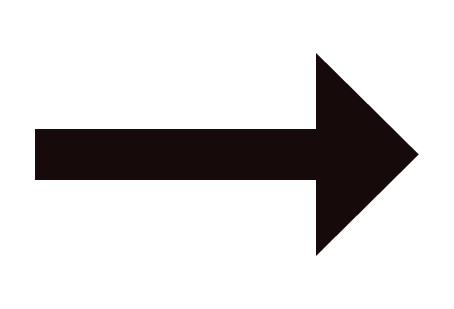 [RESET] and then your current altitude.
[RESET] and then your current altitude.
The second hand (Altitude Differential Indicator) will indicate the difference between the reference altitude and the current altitude reading. At this time the second hand should indicate ±0 m (±0 feet).
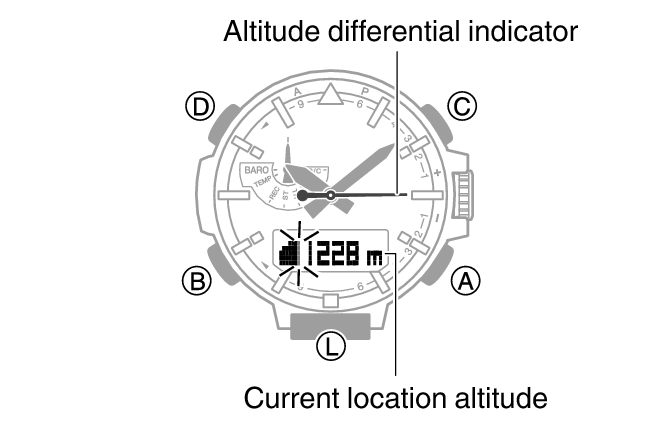
When the altitude differential you found on the map is the same as that indicated by the second hand, it means you are close to your destination.
Example: Altitude differential of -30 m (-98 feet) (-300 m (-984 feet))
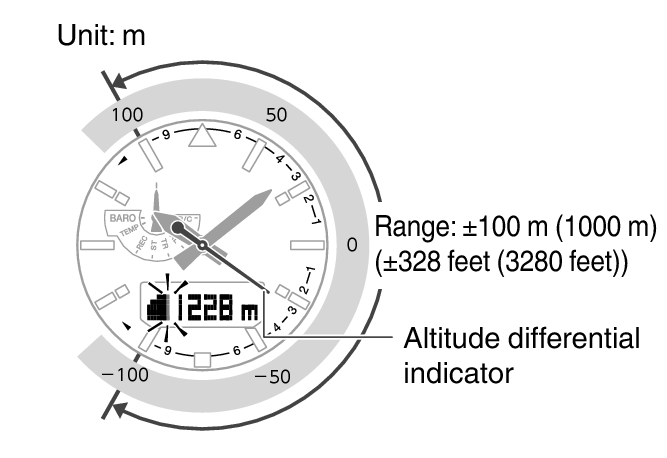
Note
You can toggle between the two second hand functions by pressing (D).
The second hand points to 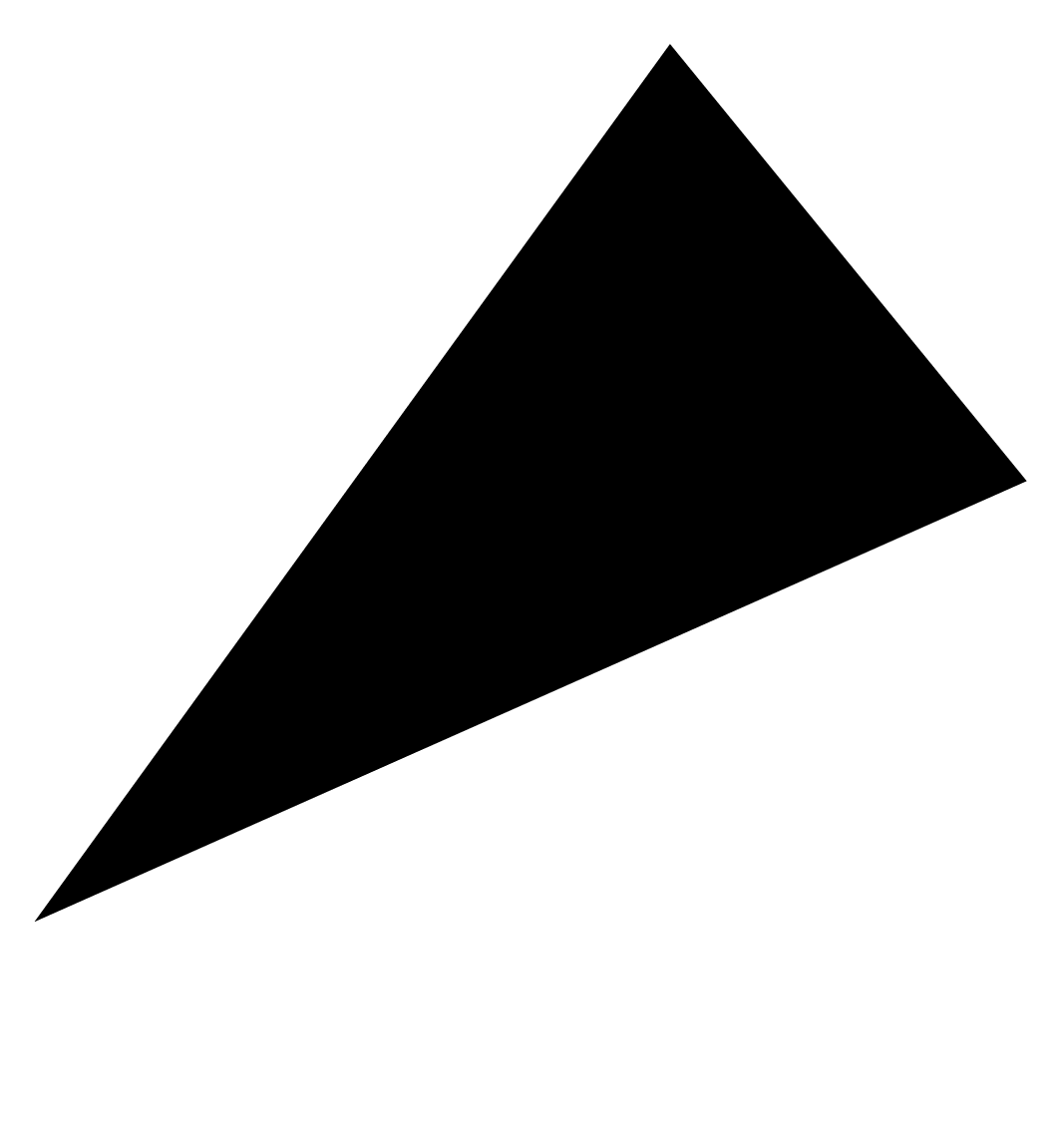 (over) if the current altitude differential is greater than the setting value, or
(over) if the current altitude differential is greater than the setting value, or 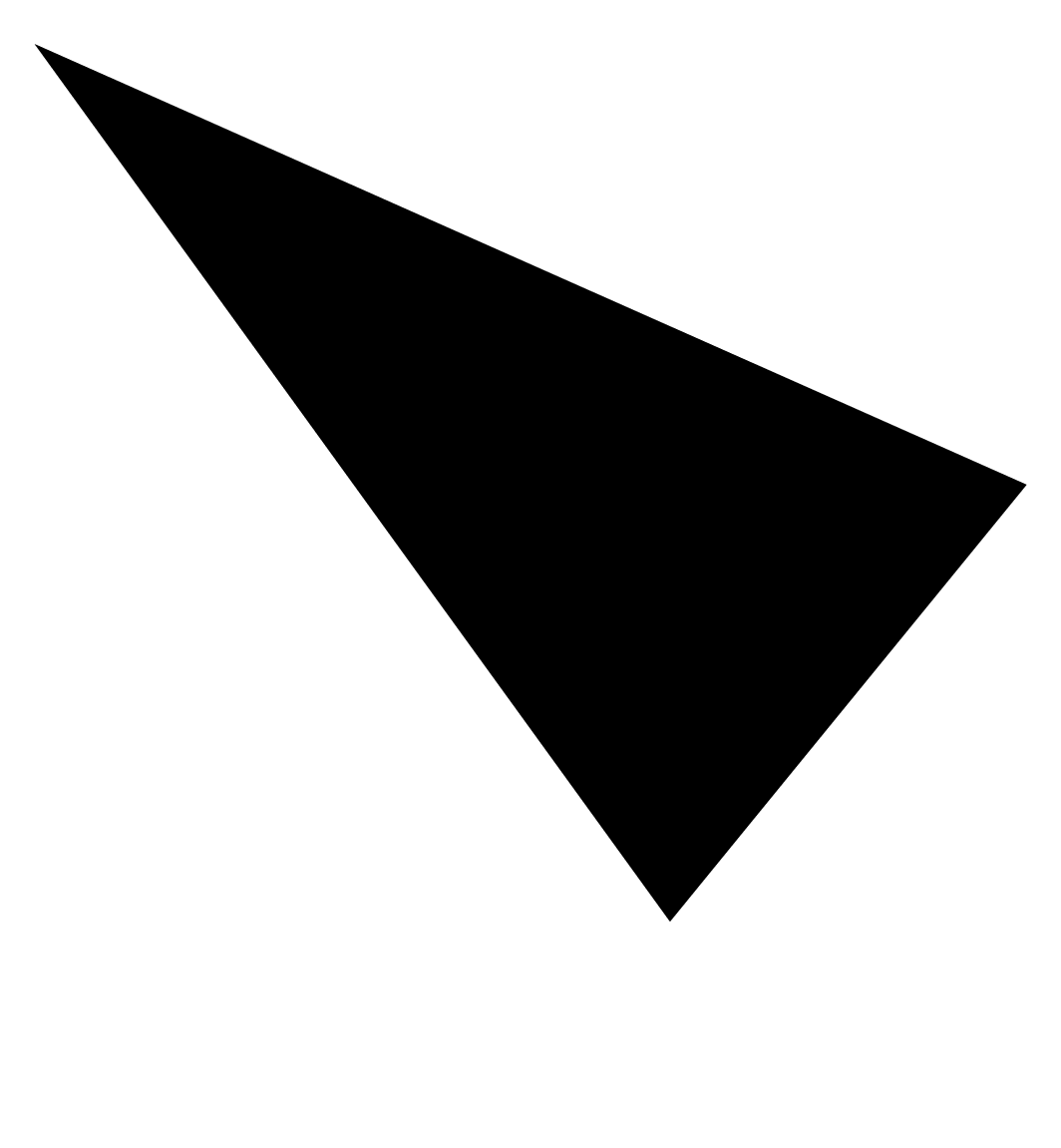 (under) if it is lower than the setting value.
(under) if it is lower than the setting value.
If either of these is indicated while using the ±100 m (328 feet) measurement range, change the range setting to ±1000 m (3280 feet).
The second hand will move to 9 o’clock if a reading is outside the allowable altitude measurement range (-700 m to 10,000 m (-2,300 to 32,800 feet)), or if a reading error occurs.
